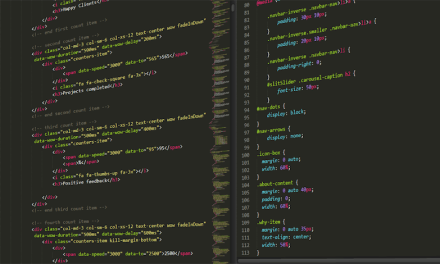Table of Contents
- Introduction
- The Importance of Self-Care for Mental Health
- How to Avoid Burnout in a Fast-Paced World
- The Benefits of Taking Breaks Throughout the Day
- Tips for Creating a Relaxing Evening Routine
- The Impact of Stress on Physical Health
- Ways to Incorporate Mindfulness into Your Daily Life
- The Power of Positive Thinking in Overcoming Challenges
- Strategies for Setting Boundaries to Protect Your Energy
- The Connection Between Sleep and Overall Well-Being
- Q&A
- Conclusion
“Recharge or Perish: Power up or shut down.”
Introduction
Recharge or Perish is a concept that emphasizes the importance of taking time to rest and rejuvenate in order to avoid burnout and maintain overall well-being. It highlights the necessity of self-care and prioritizing mental and physical health in today’s fast-paced and demanding world. By making time for self-renewal and relaxation, individuals can prevent exhaustion and maintain a healthy work-life balance.
The Importance of Self-Care for Mental Health
In today’s fast-paced world, it’s easy to get caught up in the hustle and bustle of everyday life. From work deadlines to family obligations, it can feel like there’s never enough time in the day to take care of yourself. However, neglecting your mental health can have serious consequences. That’s why it’s crucial to prioritize self-care and make time to recharge.
Research has shown that chronic stress can have a negative impact on both our physical and mental well-being. When we’re constantly on the go and never take time to relax and recharge, our bodies go into overdrive, releasing stress hormones that can wreak havoc on our health. From increased risk of heart disease to weakened immune systems, the effects of chronic stress are far-reaching.
But it’s not just our physical health that suffers when we neglect self-care. Our mental health can also take a hit. When we’re constantly stressed and overwhelmed, it can lead to feelings of anxiety, depression, and burnout. These mental health issues can have a profound impact on our quality of life, making it difficult to function at work, maintain relationships, and enjoy the things we once loved.
That’s why it’s so important to prioritize self-care and make time to recharge. Taking care of yourself isn’t selfish – it’s essential for your overall well-being. Whether it’s taking a walk in nature, practicing mindfulness meditation, or simply taking a few moments to breathe deeply, finding ways to relax and unwind can have a profound impact on your mental health.
In fact, research has shown that self-care practices like meditation and yoga can help reduce symptoms of anxiety and depression, improve mood, and increase feelings of well-being. By making self-care a priority, you can not only protect your mental health but also improve your overall quality of life.
But self-care isn’t just about relaxation and stress relief. It’s also about setting boundaries and prioritizing your needs. Learning to say no to things that drain your energy and setting aside time for activities that bring you joy and fulfillment is essential for maintaining good mental health. By taking care of yourself and putting your needs first, you can prevent burnout and ensure that you have the energy and resilience to face life’s challenges head-on.
So, how can you incorporate self-care into your daily routine? Start by making a list of activities that bring you joy and relaxation, whether it’s reading a book, going for a run, or spending time with loved ones. Then, schedule time for these activities in your calendar and treat them as non-negotiable appointments. By making self-care a priority and carving out time for yourself, you can recharge your batteries and protect your mental health.
In conclusion, self-care is not a luxury – it’s a necessity. In today’s fast-paced world, it’s easy to get caught up in the demands of everyday life and neglect our own well-being. But by prioritizing self-care and making time to recharge, we can protect our mental health, reduce stress, and improve our overall quality of life. So, remember to take care of yourself, set boundaries, and make time for activities that bring you joy and relaxation. Your mental health depends on it.
How to Avoid Burnout in a Fast-Paced World
In today’s fast-paced world, it’s easy to get caught up in the hustle and bustle of everyday life. With the constant demands of work, family, and social obligations, it’s no wonder that burnout has become a common problem for many people. Burnout is a state of emotional, physical, and mental exhaustion caused by excessive and prolonged stress. It can lead to feelings of detachment, cynicism, and a lack of motivation. If left unchecked, burnout can have serious consequences on your health and well-being.
One of the key ways to avoid burnout is to prioritize self-care and make time for activities that recharge your batteries. This can include exercise, meditation, spending time with loved ones, or engaging in hobbies that bring you joy. Taking care of yourself is not selfish – it’s essential for maintaining your overall well-being and preventing burnout.
Another important factor in avoiding burnout is setting boundaries and learning to say no. It’s easy to fall into the trap of overcommitting yourself and taking on too much. By setting boundaries and learning to prioritize your time and energy, you can avoid spreading yourself too thin and becoming overwhelmed. Saying no can be difficult, but it’s important to remember that it’s okay to put yourself first and prioritize your own needs.
In addition to self-care and setting boundaries, it’s also important to practice mindfulness and be present in the moment. Mindfulness is the practice of being aware of your thoughts, feelings, and surroundings without judgment. By practicing mindfulness, you can reduce stress and anxiety, improve your focus and concentration, and increase your overall sense of well-being. Mindfulness can be as simple as taking a few deep breaths, going for a walk in nature, or practicing gratitude for the things in your life that bring you joy.
It’s also important to take breaks and give yourself permission to rest and recharge. In today’s society, there is often a culture of busyness and a constant pressure to be productive. However, it’s important to remember that rest is essential for your physical and mental health. Taking breaks throughout the day, getting enough sleep, and taking time off when needed are all important ways to prevent burnout and maintain your well-being.
Finally, it’s important to seek support from others when you’re feeling overwhelmed. Whether it’s talking to a friend, family member, or mental health professional, reaching out for help is a sign of strength, not weakness. By sharing your feelings and experiences with others, you can gain perspective, receive support, and find new ways to cope with stress and prevent burnout.
In conclusion, burnout is a common problem in today’s fast-paced world, but it is possible to avoid it by prioritizing self-care, setting boundaries, practicing mindfulness, taking breaks, and seeking support from others. By taking proactive steps to prevent burnout, you can maintain your well-being, increase your resilience, and thrive in today’s challenging environment. Remember, it’s important to recharge your batteries regularly – because in a world that never stops, it’s essential to take care of yourself in order to avoid burnout and thrive.
The Benefits of Taking Breaks Throughout the Day
In today’s fast-paced world, it can be easy to get caught up in the hustle and bustle of daily life. With deadlines to meet, emails to respond to, and meetings to attend, it can feel like there’s never a moment to catch your breath. However, taking breaks throughout the day is essential for maintaining productivity, focus, and overall well-being.
Research has shown that our brains are not designed to focus for long periods without a break. In fact, studies have found that our attention span typically lasts for about 90 minutes before we start to lose focus. Taking short breaks throughout the day can help to reset our brains and improve our ability to concentrate on tasks.
Not only do breaks help to improve focus, but they also have a positive impact on our overall well-being. Taking breaks can help to reduce stress, improve mood, and increase creativity. When we take a break, we give our brains a chance to rest and recharge, which can lead to increased productivity and better decision-making.
One of the most common reasons people avoid taking breaks is the fear of falling behind on work. However, research has shown that taking breaks can actually improve productivity in the long run. By giving our brains a chance to rest and recharge, we are able to come back to our tasks with renewed energy and focus, leading to better results in less time.
There are many different ways to incorporate breaks into your day. Some people find it helpful to take short breaks every hour, while others prefer to take longer breaks every few hours. Experiment with different strategies to see what works best for you and your schedule.
In addition to taking regular breaks throughout the day, it’s also important to make sure that you are using your break time effectively. Instead of scrolling through social media or checking emails, try engaging in activities that help you relax and recharge. This could include going for a walk, meditating, or simply taking a few moments to breathe deeply and clear your mind.
It’s also important to remember that breaks don’t have to be long or elaborate to be effective. Even just a few minutes of downtime can make a big difference in your productivity and well-being. So the next time you feel yourself starting to lose focus or become overwhelmed, take a moment to step away from your work and give yourself a chance to recharge.
In conclusion, taking breaks throughout the day is essential for maintaining productivity, focus, and overall well-being. By giving our brains a chance to rest and recharge, we are able to improve our ability to concentrate on tasks, reduce stress, and increase creativity. So don’t be afraid to step away from your work and take a moment to recharge – your brain will thank you for it.
Tips for Creating a Relaxing Evening Routine

In today’s fast-paced world, it’s easy to get caught up in the hustle and bustle of daily life. From work deadlines to family responsibilities, it can feel like there’s never a moment to catch your breath. However, it’s important to prioritize self-care and relaxation in order to recharge and avoid burnout. Creating a relaxing evening routine can help you unwind, de-stress, and prepare for a restful night’s sleep.
One key tip for creating a relaxing evening routine is to establish a consistent bedtime. Going to bed at the same time each night can help regulate your body’s internal clock and improve the quality of your sleep. Aim to wind down at least an hour before bedtime by engaging in calming activities such as reading, meditating, or taking a warm bath. Avoid screens and stimulating activities that can interfere with your ability to relax and fall asleep.
Another important aspect of a relaxing evening routine is to prioritize self-care. This can include activities such as skincare, journaling, or practicing gratitude. Taking time to care for yourself can help you feel more grounded and centered, allowing you to let go of the stresses of the day. Consider incorporating a self-care ritual into your evening routine, such as applying a face mask or writing in a gratitude journal, to help you unwind and recharge.
In addition to self-care, it’s important to create a calming environment in your home to promote relaxation. This can involve dimming the lights, playing soft music, or lighting candles to create a soothing atmosphere. Consider incorporating aromatherapy into your evening routine by using essential oils such as lavender or chamomile to help you relax and unwind. Creating a peaceful environment can signal to your body that it’s time to rest and prepare for sleep.
One final tip for creating a relaxing evening routine is to practice mindfulness and gratitude. Take a few moments each evening to reflect on the positive aspects of your day and express gratitude for the things you are thankful for. This can help shift your focus from any negative thoughts or worries and promote a sense of peace and contentment. Consider incorporating a mindfulness practice such as deep breathing or progressive muscle relaxation into your evening routine to help you relax and let go of any tension or stress.
In conclusion, creating a relaxing evening routine is essential for recharging and rejuvenating your mind, body, and spirit. By establishing a consistent bedtime, prioritizing self-care, creating a calming environment, and practicing mindfulness and gratitude, you can create a peaceful and restful end to your day. Incorporating these tips into your evening routine can help you unwind, de-stress, and prepare for a restful night’s sleep. Remember, taking care of yourself is not a luxury, it’s a necessity. Recharge or perish.
The Impact of Stress on Physical Health
In today’s fast-paced world, stress has become a common part of daily life for many people. Whether it’s due to work pressures, financial worries, relationship issues, or health concerns, stress can take a toll on both our mental and physical well-being. While most of us are aware of the negative impact that stress can have on our mental health, we often overlook the effects it can have on our physical health.
Research has shown that chronic stress can lead to a wide range of physical health problems, including heart disease, high blood pressure, obesity, diabetes, and weakened immune function. When we are under stress, our bodies release hormones such as cortisol and adrenaline, which can increase our heart rate, raise our blood pressure, and suppress our immune system. Over time, these physiological responses to stress can contribute to the development of serious health conditions.
One of the most common physical health problems associated with chronic stress is cardiovascular disease. Studies have found that people who experience high levels of stress are at an increased risk of developing heart disease, including heart attacks and strokes. This is because stress can cause inflammation in the body, which can damage the walls of the arteries and lead to the buildup of plaque. Over time, this can restrict blood flow to the heart and increase the risk of a heart attack.
In addition to cardiovascular disease, chronic stress can also have a negative impact on our immune system. When we are under stress, our bodies produce fewer white blood cells, which are responsible for fighting off infections and diseases. This can leave us more vulnerable to illnesses such as colds, flu, and other infections. In fact, research has shown that people who are under chronic stress are more likely to get sick and take longer to recover from illness than those who are not stressed.
Furthermore, stress can also contribute to weight gain and obesity. When we are stressed, our bodies release cortisol, a hormone that can increase our appetite and lead to overeating. In addition, stress can also cause us to crave unhealthy foods that are high in sugar, fat, and calories. Over time, this can lead to weight gain and obesity, which are risk factors for a variety of health problems, including diabetes, high blood pressure, and heart disease.
It’s clear that chronic stress can have a significant impact on our physical health. In order to protect ourselves from the negative effects of stress, it’s important to find healthy ways to manage and reduce stress in our lives. This can include practicing relaxation techniques such as deep breathing, meditation, yoga, or tai chi, getting regular exercise, eating a healthy diet, getting enough sleep, and seeking support from friends, family, or a mental health professional.
By taking steps to reduce stress and prioritize our physical health, we can protect ourselves from the harmful effects of chronic stress and improve our overall well-being. Remember, it’s not just our mental health that’s at stake – our physical health is also on the line. So take the time to recharge and take care of yourself, because the alternative is to perish under the weight of chronic stress.
Ways to Incorporate Mindfulness into Your Daily Life
In today’s fast-paced world, it’s easy to get caught up in the hustle and bustle of daily life. From work deadlines to family obligations, it can feel like there’s never a moment to catch your breath. However, it’s important to remember that taking time for yourself is crucial for your overall well-being. One way to do this is by incorporating mindfulness into your daily routine.
Mindfulness is the practice of being present in the moment and fully aware of your thoughts, feelings, and surroundings. It has been shown to reduce stress, improve focus, and enhance overall mental health. By incorporating mindfulness into your daily life, you can recharge your mind and body, allowing you to tackle whatever challenges come your way.
One way to incorporate mindfulness into your daily routine is by starting your day with a few minutes of meditation. This can help set the tone for the rest of your day, allowing you to approach each task with a clear and focused mind. You can start by finding a quiet space, closing your eyes, and focusing on your breath. As thoughts come into your mind, simply acknowledge them and let them go, returning your focus to your breath.
Throughout the day, you can also practice mindfulness by taking short breaks to check in with yourself. This can be as simple as taking a few deep breaths, stretching your body, or going for a short walk outside. By taking these moments to pause and reset, you can prevent burnout and stay grounded in the present moment.
Another way to incorporate mindfulness into your daily routine is by practicing gratitude. Take a few moments each day to reflect on the things you are grateful for, whether it’s a supportive friend, a delicious meal, or a beautiful sunset. By cultivating a sense of gratitude, you can shift your focus away from negative thoughts and emotions, allowing you to approach life with a more positive outlook.
In addition to these daily practices, you can also incorporate mindfulness into your daily activities. Whether you’re washing dishes, walking the dog, or eating a meal, try to be fully present in the moment. Notice the sensations, smells, and sounds around you, allowing yourself to fully experience each moment without judgment.
As you incorporate mindfulness into your daily routine, you may begin to notice a shift in your overall well-being. You may feel more focused, less stressed, and more connected to yourself and those around you. By taking the time to recharge your mind and body through mindfulness, you can prevent burnout and live a more fulfilling and balanced life.
In conclusion, incorporating mindfulness into your daily routine is a powerful way to recharge your mind and body. By starting your day with meditation, taking short breaks throughout the day, practicing gratitude, and being present in your daily activities, you can cultivate a sense of peace and balance in your life. So, take the time to recharge through mindfulness – your well-being depends on it.
The Power of Positive Thinking in Overcoming Challenges
In today’s fast-paced world, it’s easy to feel overwhelmed by the constant demands and challenges that come our way. Whether it’s work deadlines, family responsibilities, or personal struggles, it can be difficult to stay positive and motivated in the face of adversity. However, research has shown that the power of positive thinking can be a powerful tool in overcoming challenges and achieving success.
Positive thinking is more than just a feel-good mantra – it has real, tangible benefits for our mental and physical well-being. Studies have shown that individuals who maintain a positive outlook on life are more likely to experience lower levels of stress, anxiety, and depression. This is because positive thinking helps to reframe our perspective on difficult situations, allowing us to see them as opportunities for growth and learning rather than insurmountable obstacles.
One of the key benefits of positive thinking is its ability to boost our resilience in the face of adversity. When we approach challenges with a positive mindset, we are better able to bounce back from setbacks and persevere in the face of obstacles. This resilience is crucial for success in both our personal and professional lives, as it allows us to adapt to changing circumstances and overcome obstacles with grace and determination.
In addition to boosting resilience, positive thinking can also have a profound impact on our physical health. Research has shown that individuals who maintain a positive outlook on life are more likely to experience lower levels of inflammation, reduced risk of chronic diseases, and even increased longevity. This is because positive thinking has been shown to boost the immune system, reduce stress hormones, and promote overall well-being.
So how can we cultivate a more positive mindset in our daily lives? One of the key strategies is to practice gratitude. Taking the time to reflect on the things we are grateful for can help shift our focus away from negativity and towards the positive aspects of our lives. This can help us to reframe our perspective on challenges and see them as opportunities for growth and learning.
Another important strategy for cultivating positive thinking is to surround ourselves with positive influences. This can include spending time with supportive friends and family members, seeking out inspirational books and podcasts, and engaging in activities that bring us joy and fulfillment. By surrounding ourselves with positivity, we can create a more uplifting and empowering environment that supports our mental and emotional well-being.
In conclusion, the power of positive thinking is a valuable tool in overcoming challenges and achieving success in our lives. By maintaining a positive outlook, we can boost our resilience, improve our physical health, and cultivate a mindset of gratitude and optimism. So the next time you find yourself facing a difficult situation, remember the power of positive thinking – it may just be the key to unlocking your full potential and achieving your goals. Remember, recharge or perish.
Strategies for Setting Boundaries to Protect Your Energy
In today’s fast-paced world, it’s easy to feel overwhelmed and drained by the demands of work, family, and social obligations. Many people find themselves constantly on the go, with little time to rest and recharge. However, failing to set boundaries and protect your energy can have serious consequences for your physical and mental well-being.
Research has shown that chronic stress and burnout can lead to a host of health problems, including heart disease, depression, and anxiety. In order to avoid these negative outcomes, it’s essential to prioritize self-care and make time for activities that help you recharge and rejuvenate.
One of the most effective strategies for protecting your energy is setting boundaries. This means establishing clear limits on how much time and energy you are willing to devote to work, social engagements, and other commitments. By setting boundaries, you can ensure that you have time for yourself and the activities that bring you joy and fulfillment.
Setting boundaries can be challenging, especially if you are used to saying yes to every request that comes your way. However, learning to say no is essential for protecting your energy and avoiding burnout. It’s important to remember that it’s okay to prioritize your own needs and well-being, even if it means disappointing others.
In addition to saying no, it’s also important to communicate your boundaries clearly and assertively. This means being honest with others about your limitations and not feeling guilty for taking care of yourself. By setting boundaries and communicating them effectively, you can create a healthier and more balanced life for yourself.
Another important strategy for protecting your energy is learning to delegate tasks and ask for help when you need it. Many people feel like they have to do everything themselves, but this can lead to feelings of overwhelm and exhaustion. By delegating tasks to others and asking for help when you need it, you can free up time and energy for activities that nourish your soul.
It’s also important to prioritize activities that help you recharge and rejuvenate. This might include exercise, meditation, spending time in nature, or engaging in hobbies that bring you joy. By making time for these activities, you can replenish your energy reserves and prevent burnout.
Finally, it’s important to practice self-care on a regular basis. This means taking time to rest, relax, and engage in activities that nourish your mind, body, and spirit. Self-care can take many forms, from taking a bubble bath to going for a walk in nature to spending time with loved ones. Whatever form it takes, self-care is essential for protecting your energy and maintaining your well-being.
In conclusion, setting boundaries and protecting your energy are essential strategies for avoiding burnout and maintaining your physical and mental health. By learning to say no, communicate your boundaries effectively, delegate tasks, prioritize activities that recharge you, and practice self-care, you can create a healthier and more balanced life for yourself. Remember, it’s okay to put yourself first and prioritize your own well-being. Recharge or perish – the choice is yours.
The Connection Between Sleep and Overall Well-Being
In today’s fast-paced world, it’s easy to overlook the importance of getting a good night’s sleep. With so many demands on our time and attention, sleep often takes a backseat to work, social obligations, and other activities. However, research has shown time and time again that sleep is crucial for our overall well-being. In fact, failing to get enough sleep can have serious consequences for both our physical and mental health.
One of the most obvious effects of sleep deprivation is fatigue. When we don’t get enough rest, our bodies simply don’t have the energy they need to function properly. This can lead to a whole host of problems, including decreased productivity, impaired decision-making, and an increased risk of accidents. In the long term, chronic sleep deprivation can even contribute to serious health conditions such as obesity, diabetes, and heart disease.
But the effects of sleep deprivation go beyond just physical fatigue. Lack of sleep can also have a significant impact on our mental health. Studies have shown that people who don’t get enough sleep are more likely to experience mood swings, irritability, and difficulty concentrating. In severe cases, chronic sleep deprivation can even contribute to the development of mental health disorders such as depression and anxiety.
So why is sleep so important for our overall well-being? The answer lies in the complex relationship between sleep and our bodies’ natural rhythms. When we sleep, our bodies go through a series of stages that are essential for rest and rejuvenation. During deep sleep, our bodies repair themselves, consolidate memories, and regulate hormones. Without enough deep sleep, our bodies simply can’t function at their best.
But getting enough sleep isn’t just about the quantity of rest we get – it’s also about the quality. In today’s hyper-connected world, many of us struggle to disconnect from our devices and wind down before bed. This can have a serious impact on the quality of our sleep, as the blue light emitted by screens can disrupt our bodies’ natural sleep-wake cycle. To improve the quality of our sleep, experts recommend establishing a bedtime routine that includes turning off screens at least an hour before bed, creating a relaxing environment, and practicing relaxation techniques such as deep breathing or meditation.
In addition to improving the quality of our sleep, it’s also important to prioritize the quantity. Most adults need between 7-9 hours of sleep per night to function at their best. If you’re consistently getting less than this, it’s time to make sleep a priority. This may mean reevaluating your schedule, setting boundaries with work or social commitments, or seeking help from a healthcare professional if you’re struggling with insomnia or other sleep disorders.
Ultimately, the connection between sleep and overall well-being is clear: if we don’t prioritize rest and rejuvenation, we risk compromising our physical and mental health. So the next time you find yourself tempted to burn the midnight oil or sacrifice sleep for other activities, remember that getting enough rest isn’t just a luxury – it’s a necessity. Recharge your body and mind with a good night’s sleep, and watch as your overall well-being improves. After all, as the saying goes, it’s better to recharge than to perish.
Q&A
1. What is the title of the book?
Recharge or Perish
2. Who is the author of the book?
Alan Weiss
3. When was the book published?
The book was published in 2006.
4. What is the main theme of the book?
The main theme of the book is the importance of recharging and rejuvenating oneself in order to avoid burnout.
5. How many chapters are there in the book?
There are 9 chapters in the book.
6. What are some of the strategies mentioned in the book for recharging?
Some strategies mentioned in the book include taking breaks, practicing mindfulness, and engaging in activities that bring joy.
7. What are some of the consequences of not recharging, as discussed in the book?
Some consequences of not recharging discussed in the book include decreased productivity, increased stress, and overall burnout.
8. Who is the target audience for this book?
The target audience for this book is individuals who are looking to improve their work-life balance and avoid burnout.
9. What is the overall message of the book?
The overall message of the book is that taking time to recharge and prioritize self-care is essential for long-term success and well-being.
Conclusion
Recharge or Perish emphasizes the importance of taking time to rest and rejuvenate in order to avoid burnout and maintain overall well-being. It serves as a reminder that self-care is essential for long-term success and happiness. By prioritizing self-care and making time for rest and relaxation, individuals can recharge their energy and avoid the negative consequences of overworking and neglecting their mental and physical health. Ultimately, the choice to recharge or perish is a personal one that can have a significant impact on one’s quality of life.





